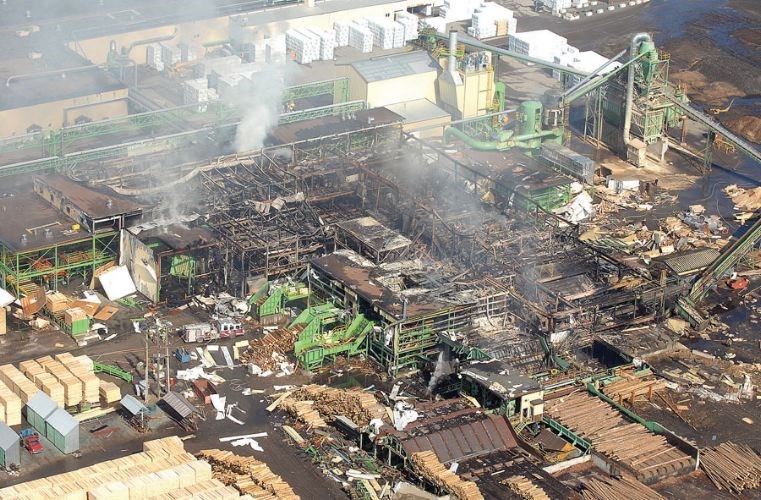Lakeland Mill's reconstruction will be starting Monday.
The destroyed mill in Prince George's downtown is still the subject of a provincial Crown investigation, but Greg Stewart, president of Sinclar Group Forest Products (primary owners) announced in March that the company planned to rebuild nonetheless.
"We made the decision to rebuild despite any decisions on final insurance settlement," Stewart said at the time.
On Monday, he and other officials from the Lakeland company, the millworkers' union, the City of Prince George and representatives from the employees will disclose the details of the rebuild plan and begin construction.
Stewart called April 23, 2012 "the worst day in Lakeland Mills history. It began a year of challenge and sorrow for all of us." It was the night the sawmill facility exploded and burned. Workers Glenn Roche and Alan Little died as a result, numerous other workers were injured and 150 people were put out of work.
It was the second such incident that year. The first being Babine Forest Products in Burns Lake that was similarly destroyed in an exposion, triggering a massive fire. It also killed two workers, left many others injured, and put the community in an economic choke-hold with the sudden unemployment and halting of operations.
Babine is also currently under reconstruction, but had extra challenges. Unlike Babine, where wood will have to be found from various sources to make the rebuilt facility viable, Sinclar Group had their own cache of trees.
Lakeland Mills Ltd. has an annual allowable cut of 250,000 cubic metres and the now-closed Winton Global Mill division of the company has tenure for another 505,000 cubic metres.
Stewart said the Lakeland customer base was also strong. They were one of the first Canadian forest companies to get wood supply contracts in Asia - specifically Japan - and that market will again buy from them once they are back on their feet, he said. Additionally there are talks underway with interests in China.



